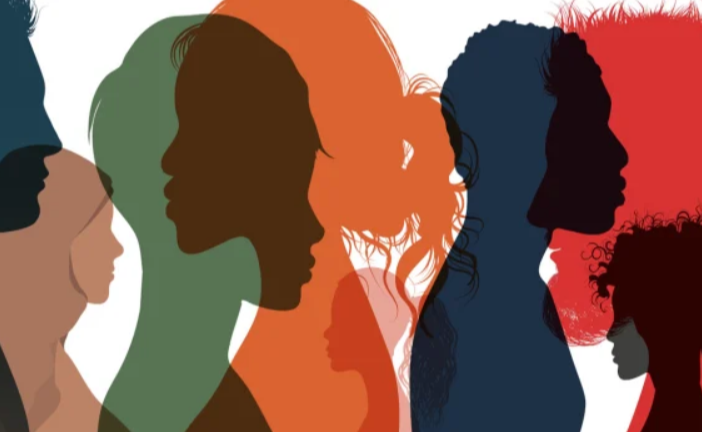Like
Like Love Haha Wow Sad Angry
1
(ThyBlackMan.com) That’s a shocking claim given today’s socio-political divisions. Still, I think that it’s (almost) universally true. Roughly 30 years ago, an “aha moment” arose in which white Americans began to realize that the nation’s demographics were changing apace. Some were in denial. Some were angry. Most were curious about what such change might mean socio-economically and politically. As a result, DEI efforts have been relatively common in corporate America since the mid-late 1990s.
Before we go further, let’s dive into what DEI (Diversity, Equity, and Inclusion) means. Diversity, in this context, is a state in which people from “different backgrounds” exist in a common environment (e.g., the workplace). The idea is that workplaces should reflect the demographics of the general population, or at least resemble the organization’s customer base.
Equity is more fraught because its achievement necessitates empirical evidence of progress; for equity to be meaningful, we must be able to demonstrate that one’s sex, race, sexual orientation, or gender identity don’t prevent them from being hired or promoted – or get them fired. Of course, measurable progress has always been the bane of existence for those who fight against racial equality.
Inclusion is, in some ways, the most difficult state to achieve. Merely co-existing in close proximity with people who are different from you doesn’t guarantee harmony. Indeed, it frequently stokes violence. As evidence we need merely to look at the history of the South, a history that is replete with whites committing domestic terrorism against their Black neighbors with little or no provocation. (Before I get angry email messages, I’ll note that such terrorism is not the sole province of those who live below the Mason-Dixon Line.)
There is an old saying: “In the South, Blacks can get as close as they want (to whites), as long as they don’t get too ‘high’. In the North, Blacks can get as ‘high’ as they want, as long as they don’t get too close.” My perception is that this is no longer true; classism is the common-law wife of racism.
An additional word about diversity is in order. At first, the phrase “broadly defined” was often appended to “diversity”. Why? Because the primary issue was (and remains) race. “Broadly defined” was added to signify other factors: Education level. Geographic origin (i.e., born in the U.S.). Regional accent. The point was to ensure that white people, especially men, were not excluded from the perceived benefits of DEI.
In the olden days, proponents of diversity were quick to point out that it was “different from affirmative action”. Affirmative action is a set of de jure practices that, ostensibly, are designed to mitigate the effects of race- and sex-based discrimination. (That is, until the irreparably misguided Republican members of SCOTUS completely obliterate it). By contrast, “diversity” programs are voluntary and tend to focus more on workplace environment. DEI programs were never intended to be a synonym for affirmative action.
Now that we’ve cleared all that up, why do I argue that almost nobody – including Republicans – is against DEI? Well, the evidence dictates as much. For example, Republicans are often accused of being less than hospitable to immigrants and non-whites (irrespective of their provenance). To combat this perception, which is the result of decades of racial insensitivity by the GOP, they repeatedly highlighted the racial diversity of Republican presidential candidates in 2016 and 2020. They also breathlessly promote initiatives such as “Blacks for Trump”.
At the same time, Republicans bemoan calls for increasing racial diversity in our institutions. I call their bluff. Suppose, for example, that eight of the nine Supreme Court justices were Black. Or Hispanic. Or Asian-American. The GOP could not claim, at least with a straight face, that they would be just fine with that. We would endure endless recriminations about “racial discrimination against white people”. (Indeed, research shows that the vast majority of Republicans believe that racial discrimination against whites is as bad as it is against Blacks.) In short, racial diversity is only important when whites are perceived to be disadvantaged.
Yet these folks strongly espouse “diversity of viewpoint” (e.g., on college campuses). That has nothing to do with “merit” or “qualifications”. It has everything to do with representation, which is precisely what the DEI movement is about. It turns out that Republicans do want DEI when they perceive it as beneficiary.
Today’s political environment was entirely predictable in a post-George Floyd world in which all Americans of good conscience came together in unity of disgust regarding summary executions of Black men. Then came promises of more programs, more positions, and more dollars to remedy racial discrimination. Now, the reactionary voices that had temporarily gone underground are now standing tall, yelling in steel-toed boots and storming the Capitol.
There has never been a time in American history in which there were gains in racial equality that did not trigger a “blacklash” from whites who were not happy with the changes that were “being shoved down their throats”. Not a single one.
Anyone who is a member of any generally recognized race, religion, sexual orientation, gender identity, ethnicity, or nationality has a stake in DEI. But not all of us are honest about it.
Written by Larry Smith



